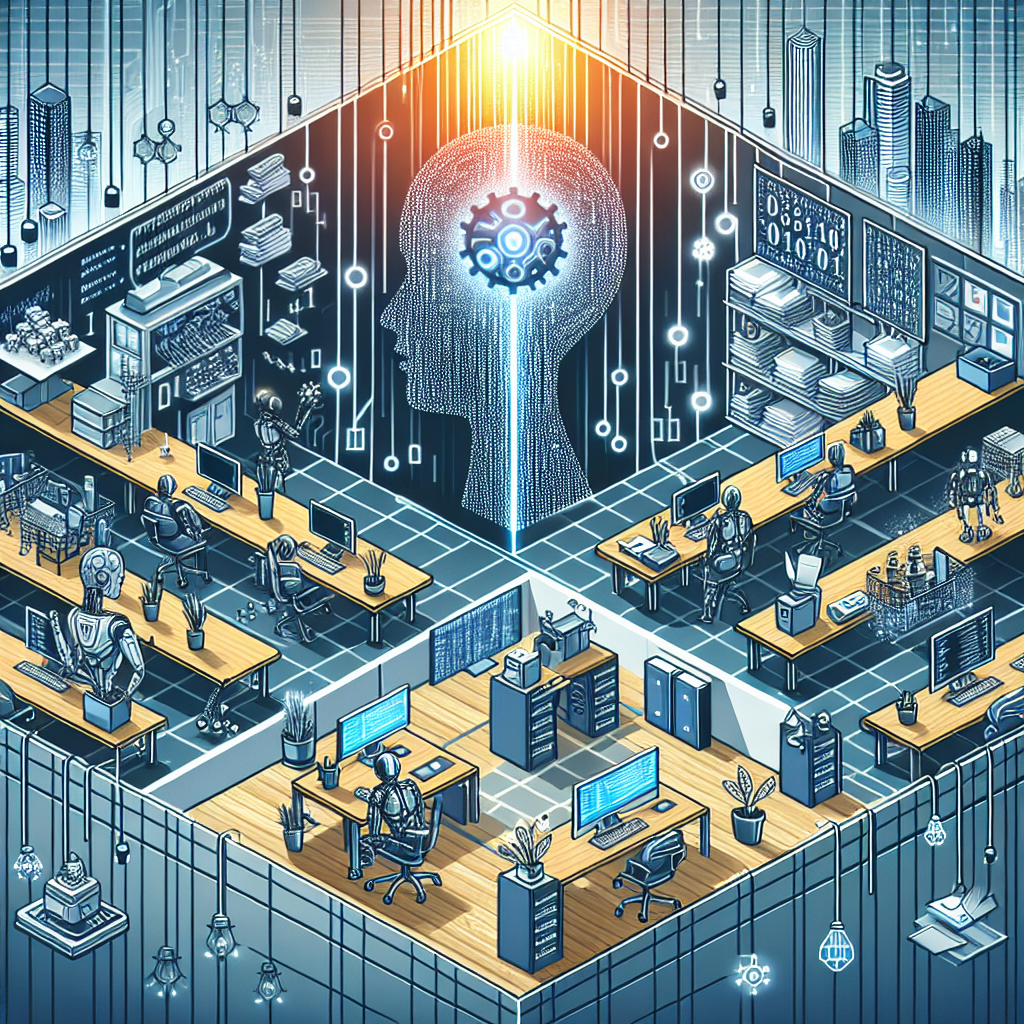The Impact of AI on the Job Market: What to Expect
Artificial Intelligence (AI) is rapidly transforming the job market in ways that were previously unimaginable. From automating routine tasks to enhancing decision-making processes, AI technology is reshaping the way we work and the skills required to succeed in the workforce. As AI continues to advance, it is important for job seekers and employers to understand the implications of this technology on the job market and prepare for the changes that lie ahead.
1. Automation of Routine Tasks
One of the most significant impacts of AI on the job market is the automation of routine tasks. AI technology can perform tasks that were previously done by humans, such as data entry, customer service, and basic analysis. This has the potential to streamline operations and increase efficiency in many industries, but it also raises concerns about job displacement.
As AI becomes more sophisticated, it is likely that more routine tasks will be automated, leading to a decrease in demand for low-skilled jobs. This could result in job losses for many workers, particularly those in industries that rely heavily on manual labor. However, it is also creating new opportunities for workers to upskill and transition into more advanced roles that require human judgment and creativity.
2. Augmentation of Human Labor
While AI has the potential to automate routine tasks, it also has the ability to augment human labor by enhancing decision-making processes and improving productivity. AI technology can analyze vast amounts of data in real-time, identify patterns and trends, and provide insights that can help businesses make better decisions.
For example, in the healthcare industry, AI-powered tools can assist doctors in diagnosing diseases, predicting patient outcomes, and personalizing treatment plans. In the financial sector, AI algorithms can analyze market trends, detect fraud, and optimize investment strategies. By leveraging AI technology, workers can focus on higher-value tasks that require human expertise, such as problem-solving, creativity, and emotional intelligence.
3. Creation of New Job Roles
As AI technology continues to advance, it is creating new job roles that require specialized skills in areas such as data science, machine learning, and artificial intelligence. These roles are in high demand across industries, as companies seek to harness the power of AI to drive innovation and improve competitiveness.
For example, data scientists are responsible for collecting, analyzing, and interpreting data to extract actionable insights that can inform business decisions. Machine learning engineers develop algorithms and models that enable machines to learn from data and make predictions. AI ethicists ensure that AI technology is developed and used in an ethical and responsible manner.
In addition to technical roles, there is also a growing demand for AI trainers, who are responsible for training AI algorithms and ensuring that they perform accurately and ethically. These new job roles offer exciting opportunities for workers to develop in-demand skills and advance their careers in a rapidly evolving job market.
4. Impact on Education and Training
The rise of AI technology is also reshaping the landscape of education and training, as workers seek to acquire the skills needed to succeed in the AI-driven job market. Traditional education models are being disrupted by online learning platforms, bootcamps, and micro-credential programs that offer flexible, affordable, and accessible training in AI-related fields.
Employers are increasingly looking for candidates with a combination of technical skills, such as programming and data analysis, and soft skills, such as critical thinking and communication. To remain competitive in the job market, workers need to continuously upskill and adapt to the changing demands of the workforce.
5. FAQs
Q: Will AI technology replace all human jobs?
A: While AI technology has the potential to automate routine tasks, it is unlikely to replace all human jobs. AI is best suited for tasks that are repetitive, rules-based, and data-driven, while human workers excel at tasks that require creativity, empathy, and critical thinking. In many industries, AI is being used to augment human labor by enhancing decision-making processes and improving productivity.
Q: What industries are most affected by AI technology?
A: AI technology is impacting a wide range of industries, including healthcare, finance, manufacturing, retail, and transportation. In healthcare, AI-powered tools are being used to assist doctors in diagnosing diseases, predicting patient outcomes, and personalizing treatment plans. In finance, AI algorithms are analyzing market trends, detecting fraud, and optimizing investment strategies. In manufacturing, AI technology is automating production processes and improving efficiency.
Q: How can workers prepare for the impact of AI on the job market?
A: To prepare for the impact of AI on the job market, workers should focus on developing in-demand skills in areas such as data science, machine learning, and artificial intelligence. They should also cultivate soft skills, such as critical thinking, communication, and adaptability, that are essential for success in the AI-driven workforce. Workers should seek out training and educational opportunities to upskill and stay ahead of the curve in a rapidly evolving job market.
In conclusion, the impact of AI on the job market is profound and far-reaching. While AI technology has the potential to automate routine tasks and displace some jobs, it also creates new opportunities for workers to upskill, transition into more advanced roles, and drive innovation in their industries. By understanding the implications of AI on the job market and preparing for the changes that lie ahead, workers can navigate the evolving landscape of work and thrive in the AI-driven economy.

